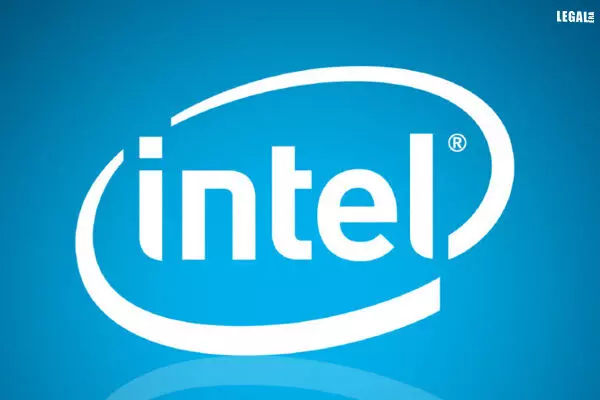- Home
- News
- Articles+
- Aerospace
- Artificial Intelligence
- Agriculture
- Alternate Dispute Resolution
- Arbitration & Mediation
- Banking and Finance
- Bankruptcy
- Book Review
- Bribery & Corruption
- Commercial Litigation
- Competition Law
- Conference Reports
- Consumer Products
- Contract
- Corporate Governance
- Corporate Law
- Covid-19
- Cryptocurrency
- Cybersecurity
- Data Protection
- Defence
- Digital Economy
- E-commerce
- Employment Law
- Energy and Natural Resources
- Entertainment and Sports Law
- Environmental Law
- Environmental, Social, and Governance
- Foreign Direct Investment
- Food and Beverage
- Gaming
- Health Care
- IBC Diaries
- In Focus
- Inclusion & Diversity
- Insurance Law
- Intellectual Property
- International Law
- IP & Tech Era
- Know the Law
- Labour Laws
- Law & Policy and Regulation
- Litigation
- Litigation Funding
- Manufacturing
- Mergers & Acquisitions
- NFTs
- Privacy
- Private Equity
- Project Finance
- Real Estate
- Risk and Compliance
- Student Corner
- Take On Board
- Tax
- Technology Media and Telecom
- Tributes
- Viewpoint
- Zoom In
- Law Firms
- In-House
- Rankings
- E-Magazine
- Legal Era TV
- Events
- Middle East
- Africa
- News
- Articles
- Aerospace
- Artificial Intelligence
- Agriculture
- Alternate Dispute Resolution
- Arbitration & Mediation
- Banking and Finance
- Bankruptcy
- Book Review
- Bribery & Corruption
- Commercial Litigation
- Competition Law
- Conference Reports
- Consumer Products
- Contract
- Corporate Governance
- Corporate Law
- Covid-19
- Cryptocurrency
- Cybersecurity
- Data Protection
- Defence
- Digital Economy
- E-commerce
- Employment Law
- Energy and Natural Resources
- Entertainment and Sports Law
- Environmental Law
- Environmental, Social, and Governance
- Foreign Direct Investment
- Food and Beverage
- Gaming
- Health Care
- IBC Diaries
- In Focus
- Inclusion & Diversity
- Insurance Law
- Intellectual Property
- International Law
- IP & Tech Era
- Know the Law
- Labour Laws
- Law & Policy and Regulation
- Litigation
- Litigation Funding
- Manufacturing
- Mergers & Acquisitions
- NFTs
- Privacy
- Private Equity
- Project Finance
- Real Estate
- Risk and Compliance
- Student Corner
- Take On Board
- Tax
- Technology Media and Telecom
- Tributes
- Viewpoint
- Zoom In
- Law Firms
- In-House
- Rankings
- E-Magazine
- Legal Era TV
- Events
- Middle East
- Africa
Intel wins appeal in European General Court

Intel wins appeal in European General Court
The verdict offers a glimmer of hope to other tech giants embroiled in such cases
In a major setback for the European Union (EU) antitrust regulators, the European General Court has overturned the €1.06 billion ($1.2 billion) fine. The penalty was imposed on Intel almost 13 years ago for abuse of market dominance and stifling competition.
In 2009, the European Commission found that the US chipmaker had abused its position in the market for x86 processors. It had engaged in anti-competitive conduct by offering rebates to Dell, Lenovo, Hewlett-Packard (HP), and NEC, conditional on them purchasing all or most of their chips from Intel.
Accordingly, the Commission had imposed a hefty fine on Intel. The decision of the Commission was brought before the General Court by Intel, but it was dismissed in 2014. However, in 2017, on an appeal by Intel, the Court of Justice set aside the 2014 judgment and referred the matter to be heard again by the General Court.
The General Court in Luxembourg criticized the Commission's analysis, stating that it was incomplete and "does not make it possible to establish to the requisite legal standard that the rebates at issue were capable of having, or likely to have (an) anti-competitive effect."
The Court ruled, "It annuls in its entirety the article of the contested decision, which imposes on Intel a fine of €1.06 billion in respect of the infringement found."
The judgment of the Court is appealable before the Court of Justice. But the Commission has yet to decide whether it wants to proceed with an appeal.
The verdict offers a glimmer of hope to other tech giants including Apple, Alphabet's Google, Meta, and Amazon, which have, of late, been caught in EU regulator's crosshairs.



